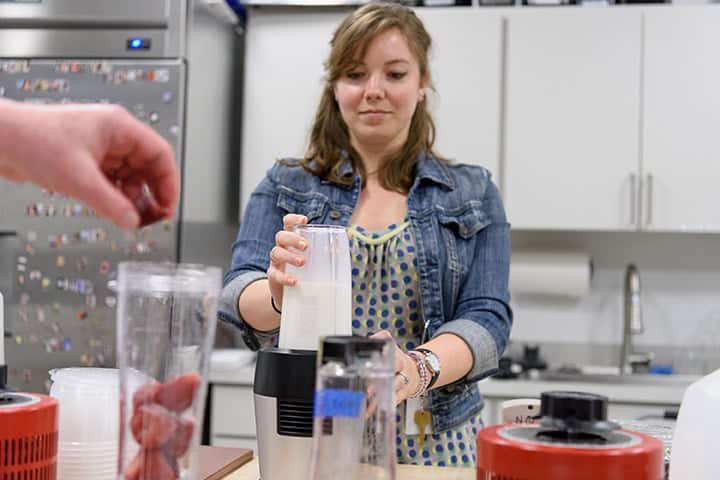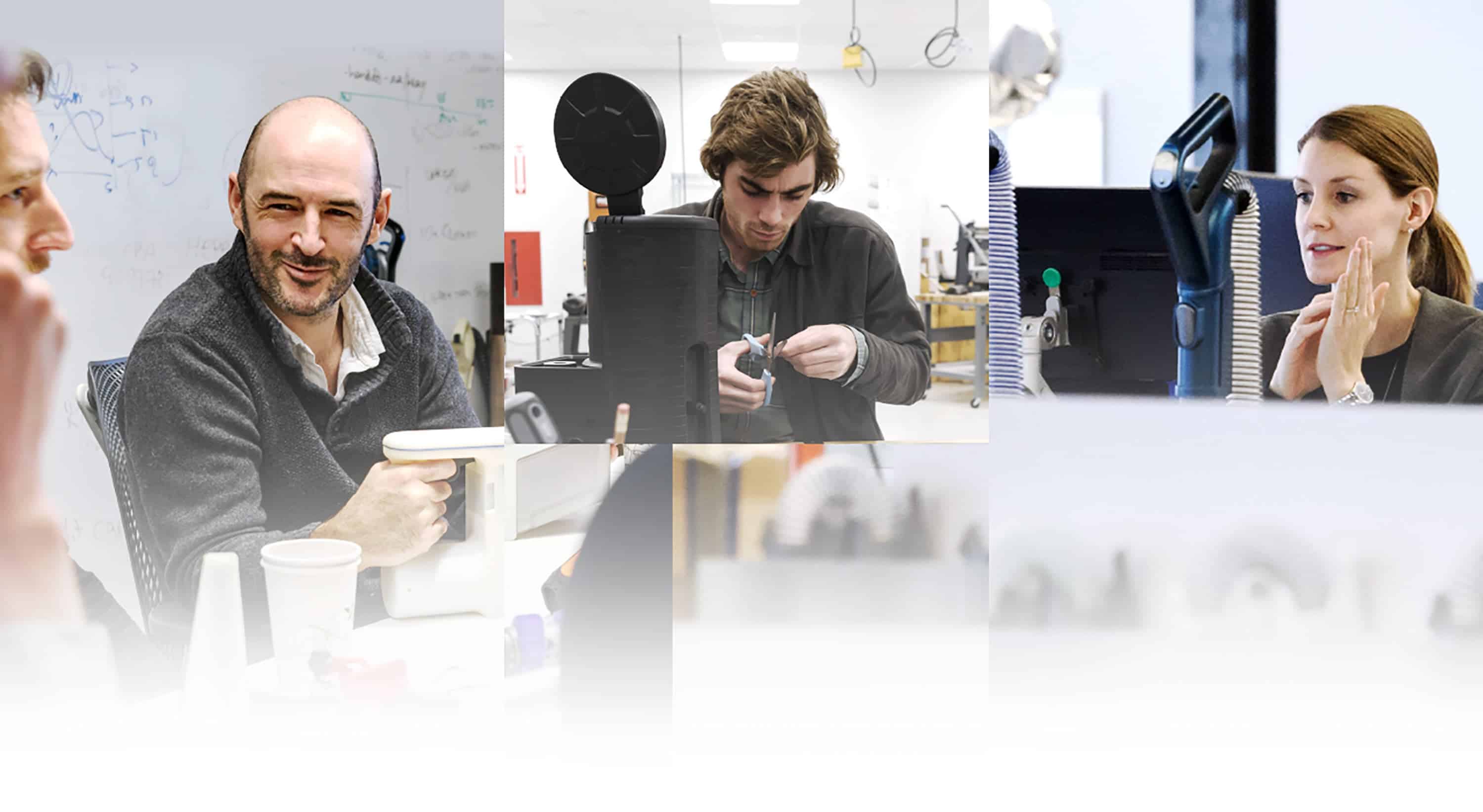The market for domestic appliances is crowded, with many manufacturers ranging from (literal) household names like Hoover and Kenwood, to companies that operate in a number of markets, such as Bosch. While these are not often thought of as innovative engineering companies in the same way that automotive and aerospace manufacturers are, the amount of innovation that it takes to launch new products, often in a variety of sectors such as floor care (vacuum cleaners) and food preparation is considerable, and SharkNinja, a relative newcomer to the sector, represents an interesting study in how such companies operate.

SharkNinja produces bagless vacuum cleaners under the Shark brand, and food preparation products - notably multifunction blenders and food processors - under the Ninja brand. Originating in the US, the company operates technical centres in three locations: Boston, Massachusetts, London and Shanghai, with manufacturing based in East Asia. Paul Bagwell, a design engineer who leads the UK operation, explains that the three locations help the company to operate a 24-hour development cycle.
“Each office has an overlap with the others in terms of working time; Boston’s working day overlaps that of London by a couple of hours, and London is closing up as Shanghai gets going. We can pass projects from team to team in the respective offices, and that works well for us; we don’t feel the need to open an office in an intermediate timezone between London and Shanghai.”
Choosing London as its European base was a matter of culture, languages and markets. “The business and technology culture in Boston is quite similar to that in the UK, possibly because it’s quite common for people from the Boston Universities to also study in Britain,” Bagwell explained. “Also, especially in terms of food preparation, kitchen culture in Britain is more similar to that in America than the cultures in much of ‘mainland Europe’, where there tends to be much more the tradition that you do things in the way that, say, your grandparents did. If you think of French or Italian food, in particular, people are somewhat less likely to be willing to use very modern technology in their kitchens, and the same tends to be true across the continent. Shanghai is a good base for us because it is such a big city for technology, it’s close to our manufacturing bases, and we have important markets in Australia.”

If SharkNinja is an unfamiliar name, it’s because its marketing strategy is somewhat different from its competitors. Eschewing large and splashy advertising campaigns, it prefers to leverage and prioritise user experience.
"We have a target of every product achieving four or five-star reviews on amazon.com,” said Bagwell. “We found that people are much more likely to buy on word-of-mouth recommendation than on the basis of advertising, and those sorts of reviews and ratings are very much the way word-of-mouth works in the early 21st century. Along with this, we have user panels that test our new products, and we will always take note of any negative remarks in reviews or in testing sessions.”
The policy is to launch an entirely new product, rather than a refinement to an existing line, every year, and Bagwell noted that the 24-hour innovation cycle allows the company to take a product from initial concept, through prototyping to full commercial launch in approximately six to nine months.
As far as the current political landscape is concerned, Bagwell thinks that Brexit will have little effect on the company's trading. "Our manufacturing is outside the EU in any case," he reasoned. "Although limiting freedom of movement could have some effect on recruiting to our London office."
In common with many manufacturers in such sectors, SharkNinja tends to outsource and specify many of its components. In contrast to Dyson, which invested heavily in developing its own ‘digital motor’ for its vacuum cleaners, the company believes that the component market can adequately supply its needs and its investment is better targeted at optimising the user experience.
“Our motors may come from somebody else, and the blades for our blenders, but they are all made to our specifications,” Bagwell said. “Everything that you see or touch is our own design, and that’s our differentiation in the market.”
Similarly, the plastic housings for the products are made by moulding subcontractors, but here the company’s innovation approach is visible in London, with a workshop on the premises which combines old-school tabletop tinkering with the most up-to-date prototyping equipment. A variety of 3D printers are humming away during my visit.
“We do go back to basics a lot, we will mock up housings in cardboard and use 3D printers to make solid models from our design software that we can then send through to our moulding subcontractors,” said Bagwell. “And it’s not just housings, we will also prototype components like gearboxes to test out how we might achieve different speeds and modes in our food-processing devices.”
A test-kitchen equipped with Ninja equipment allows staff to experiment with recipes and, during my visit, a couple of engineers were enthusiastically blending exotic smoothies. The workshop is a popular place for the London engineering team, Bagwell noted. “We all love using our hands and brains together; it’s an integral part of being an engineer. This facility is in use throughout the day, and if it were to close the complaints would be immediate, widespread and sustained.”
In the spirit of full disclosure, SharkNinja did give me a vacuum cleaner to test when I attended a product launch before visiting the technical centre. And although The Engineer is not the place for reviews of domestic products, I should say that its ability to work both as an upright and handheld vacuum is a notable and helpful innovation for one-handed cleaning, particularly valuable to me as I have lost much of the use of my left arm. Moreover, two of my colleagues coincidently bought Shark vacuum cleaners at around the same time: one of the advertising team has confessed that he is so taken with the headlights on the cleaning head that he has taken to vacuuming in the dark as the lights highlight dust on the floor so efficiently. I have also subsequently brought a Ninja blending system, and can recommend its use in making Dhal Makhani.




Glasgow trial explores AR cues for autonomous road safety
They've ploughed into a few vulnerable road users in the past. Making that less likely will make it spectacularly easy to stop the traffic for...